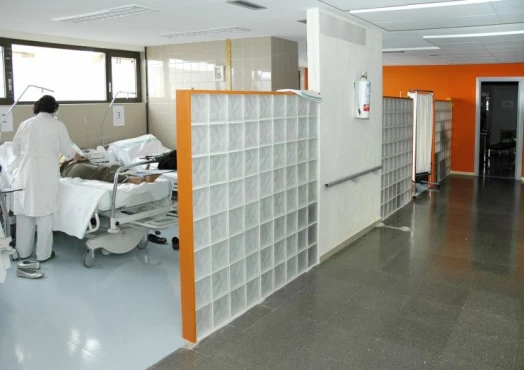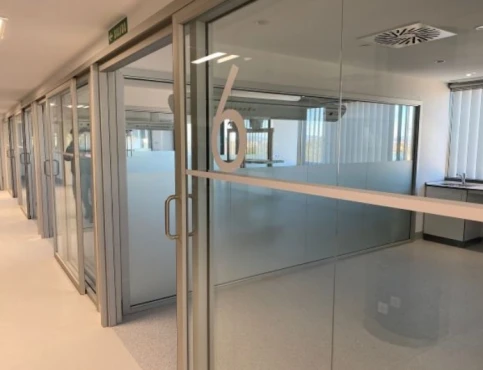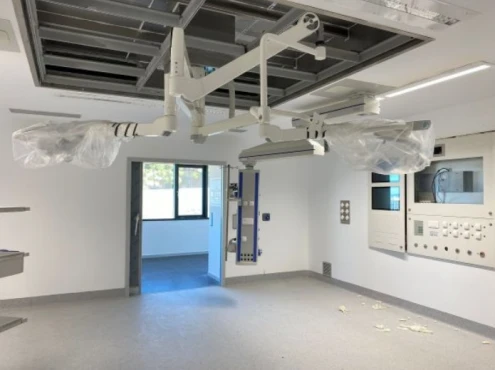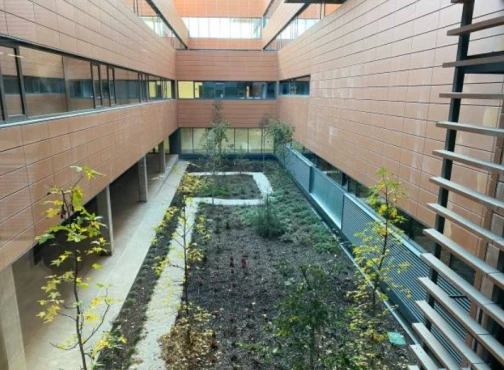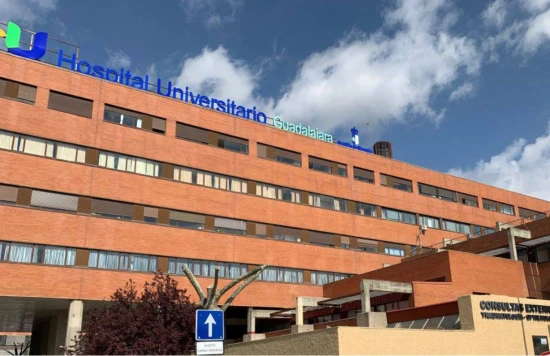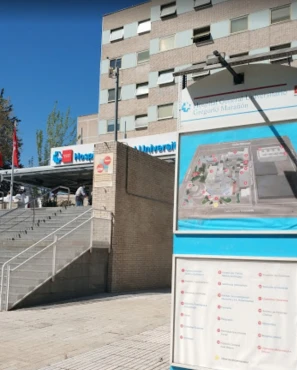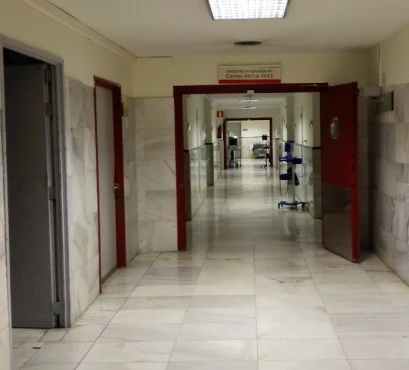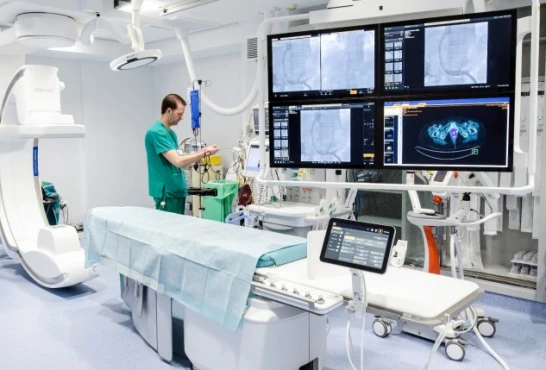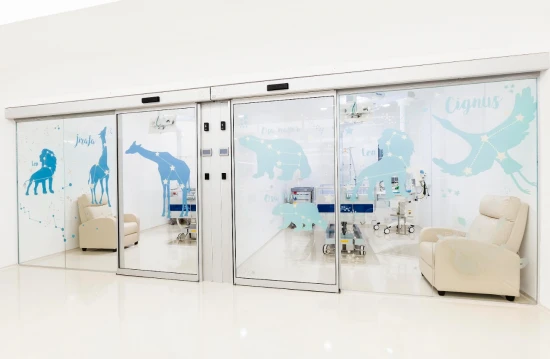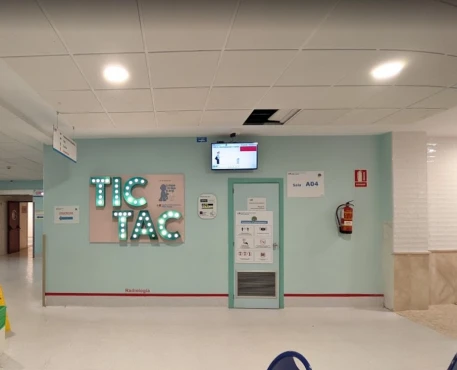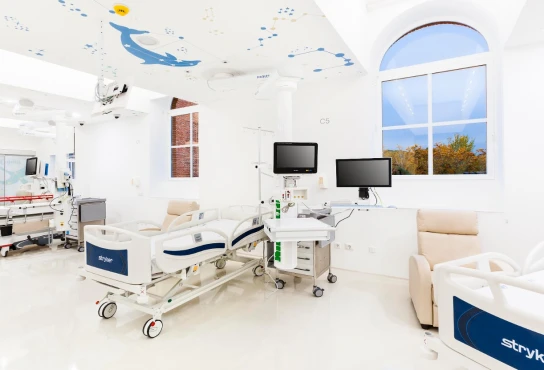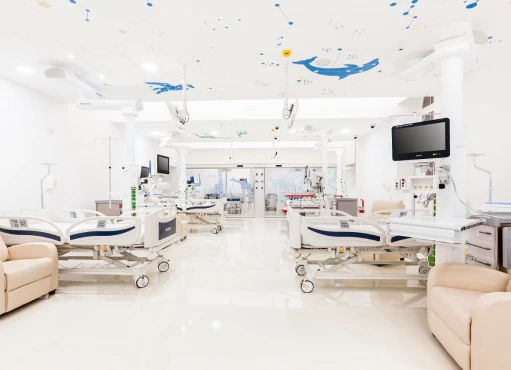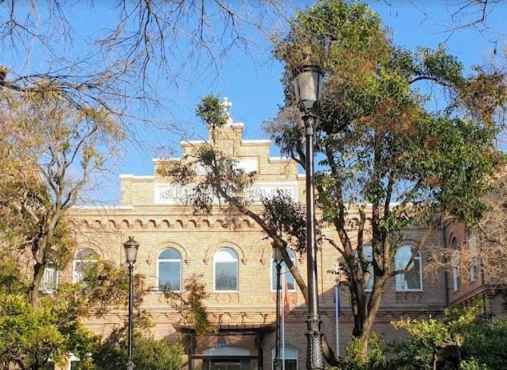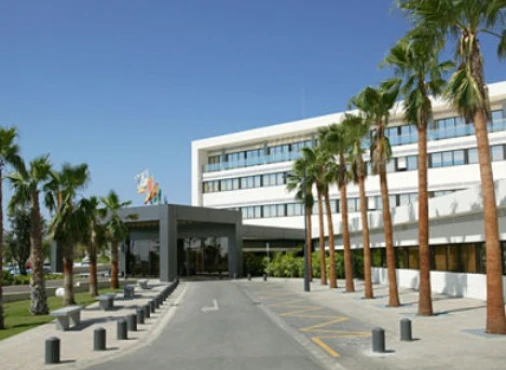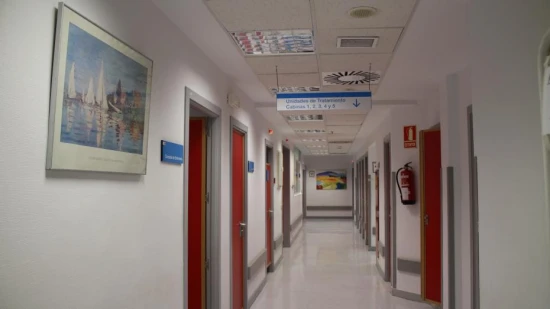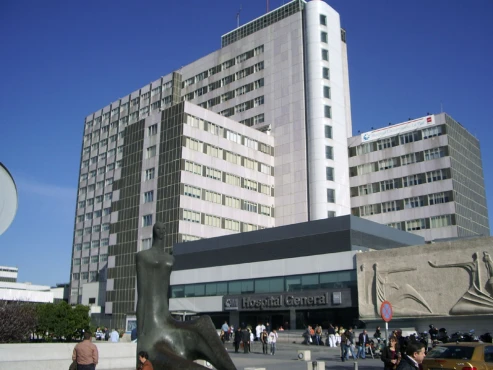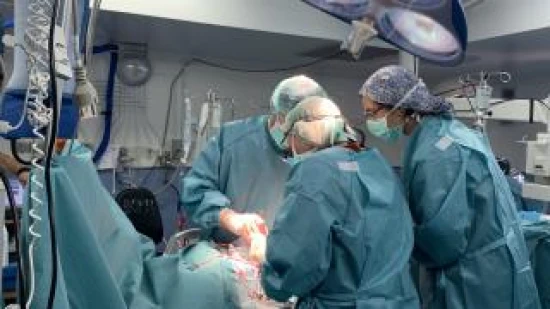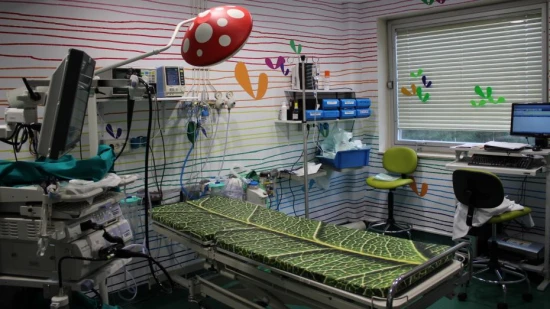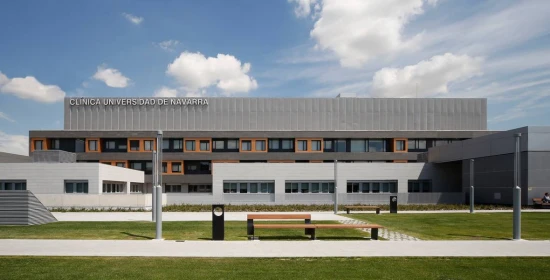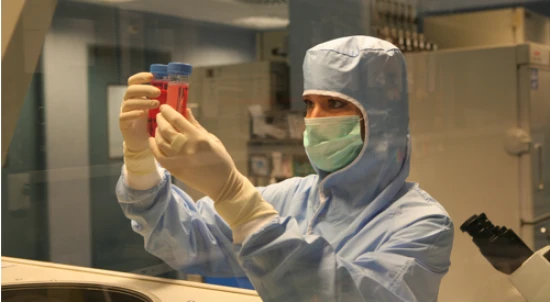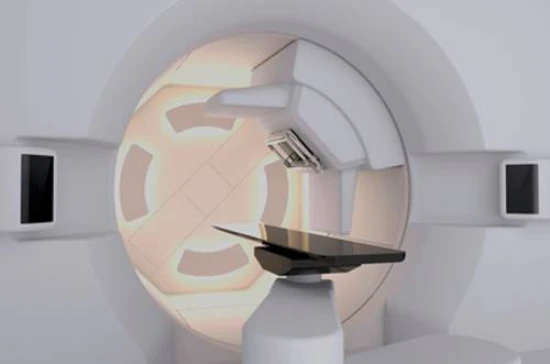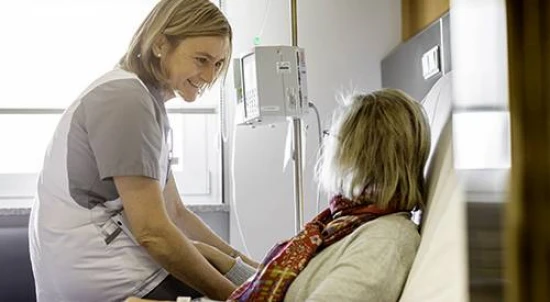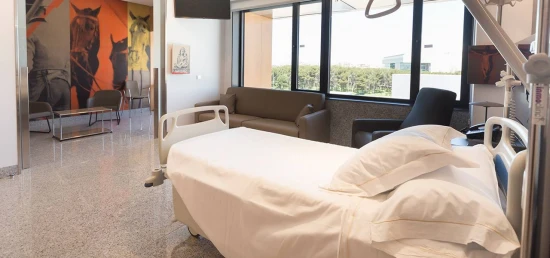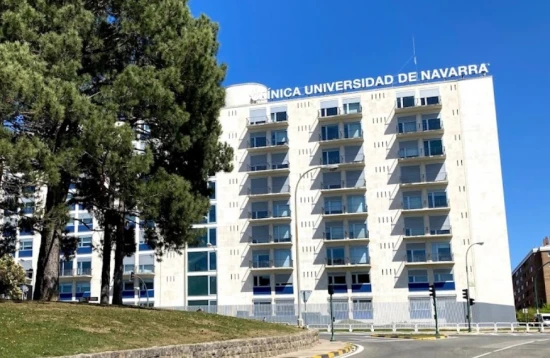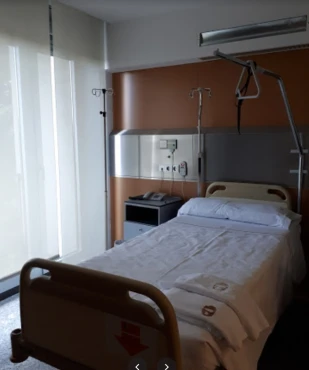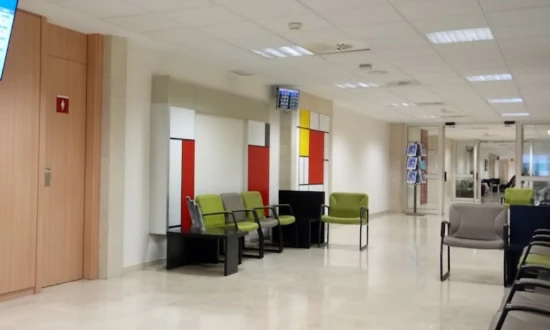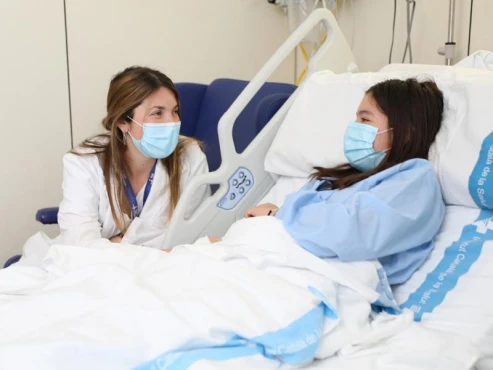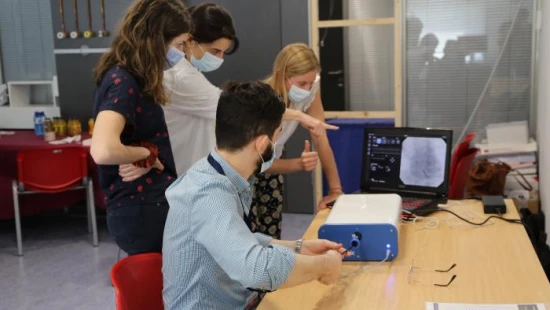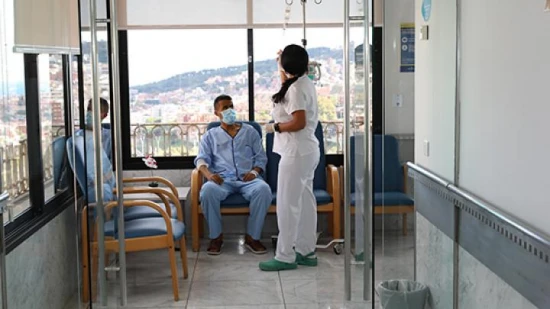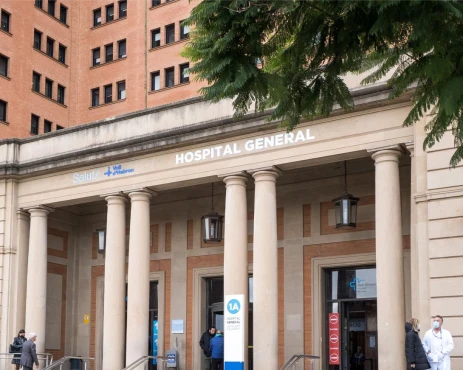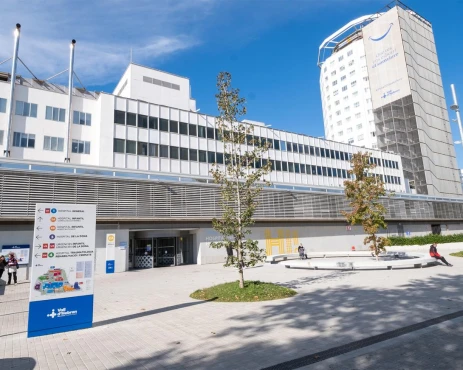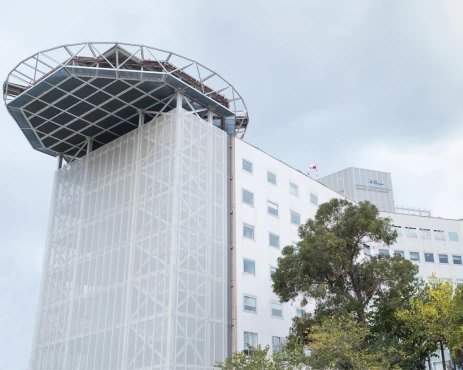Alzheimer's disease is a progressive neurological disorder that leads to the gradual loss of memory, cognitive function, and the ability to perform daily activities. Early symptoms include memory loss, confusion, and difficulty with language and problem-solving. Treatment focuses on managing symptoms and may involve medications to improve cognitive function and support therapies to assist with daily living and behavioral changes.
Alzheimer's disease treatment in 8 Oncology clinics in Spain
Top
Clinics
Ratings
Diseases
More info
Quick navigation
8 clinics specializing in Oncology providing treatment of
Alzheimer's disease
Alzheimer's disease is a progressive neurological disorder that affects memory, thinking, and behavior. It leads to cognitive decline, memory loss, confusion, and may result in functional impairment as the disease advances.
Read more...
in Spain.
1
from Vanesa r
November 18, 2023
A shame from the moment you enter, I was splitting with pain, the woman who was at the reception had 0 empathy, like the nurse who treated me, I used to find more service vocation in a veterinarian. A question that came from the pain that I couldn't even stand on my feet, this woman at the reception doesn't even flinch but tells me THAT THE MASK IS MANDATORY (we're already off to a bad start) she had me for 10 minutes asking me questions, she gives me the ticket to wait for triage, The place already had 20 people waiting..... 10 minutes pass, my husband still comes to triage saying that I couldn't take any more of the pain, and to my surprise it wasn't even in the system. I wish to the nurse who treated me that I never have anyone in charge because with that empathy even a cactus dies.... a question that, thank God, I have mutually (and this should not be like this, because we all pay the price). public hospital so that it works well), I went to a clinic and they treated me in a matter of minutes.
This hospital is really a shame, I imagine that these people are oppositional, so they would have to review the requirements to give them employment.
5
from Cristina Villa
October 15, 2023
We have been able to inaugurate all the new infrastructure of the hospital, just on October 9 in a far from easy operation.
No complaints!
Thank you all!!
They take care of us, they pamper us. Cheer up, you are doing very well and we need you.
A thousand thanks 🫂 to all the hospital staff, to everyone without exceptions.
PUBLIC HEALTH ALWAYS ♾️
5
from Claudia Castañeda
September 21, 2023
Yesterday I was with my daughter for an ultrasound in the mother's unit, room S-17. My appointment was at 11:48. I was treated by an excellent professional. I was greatly surprised by his professionalism, empathy, and gratitude for his treatment of my daughter. Same as nurses and other professionals. This is the real reason for being doctors to put themselves in the patient's shoes. I don't know what the doctor's name was, thank you for being such a great professional. !!!!Thank you so much!!!!.
Prices for popular procedures:
-
Monoclonal antibodies therapy (mAbs)
by request
-
Conization
≈ $2,546
-
Open hysterectomy
≈ $6,054
-
Loop electrosurgical excision procedure (LEEP)
≈ $1,605
-
Total laparoscopic hysterectomy (TLH)
≈ $6,399
-
Parotidectomy
≈ $4,421
-
Cervical lymphadenectomy
≈ $9,951
-
Total glossectomy
≈ $8,102
-
Simple mastectomy
≈ $6,972
2.4
5 reviews
1
from Vanesa r
November 18, 2023
A shame from the moment you enter, I was splitting with pain, the woman who was at the reception had 0 empathy, like the nurse who treated me, I used to find more service vocation in a veterinarian. A question that came from the pain that I couldn't even stand on my feet, this woman at the reception doesn't even flinch but tells me THAT THE MASK IS MANDATORY (we're already off to a bad start) she had me for 10 minutes asking me questions, she gives me the ticket to wait for triage, The place already had 20 people waiting..... 10 minutes pass, my husband still comes to triage saying that I couldn't take any more of the pain, and to my surprise it wasn't even in the system. I wish to the nurse who treated me that I never have anyone in charge because with that empathy even a cactus dies.... a question that, thank God, I have mutually (and this should not be like this, because we all pay the price). public hospital so that it works well), I went to a clinic and they treated me in a matter of minutes.
This hospital is really a shame, I imagine that these people are oppositional, so they would have to review the requirements to give them employment.
5
from Cristina Villa
October 15, 2023
We have been able to inaugurate all the new infrastructure of the hospital, just on October 9 in a far from easy operation.
No complaints!
Thank you all!!
They take care of us, they pamper us. Cheer up, you are doing very well and we need you.
A thousand thanks 🫂 to all the hospital staff, to everyone without exceptions.
PUBLIC HEALTH ALWAYS ♾️
5
from Claudia Castañeda
September 21, 2023
Yesterday I was with my daughter for an ultrasound in the mother's unit, room S-17. My appointment was at 11:48. I was treated by an excellent professional. I was greatly surprised by his professionalism, empathy, and gratitude for his treatment of my daughter. Same as nurses and other professionals. This is the real reason for being doctors to put themselves in the patient's shoes. I don't know what the doctor's name was, thank you for being such a great professional. !!!!Thank you so much!!!!.
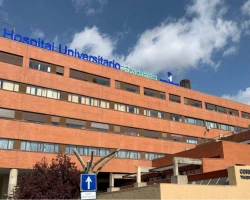
Guadalajara, Spain
Specializations: Cardiac surgery, Vascular surgery, Neurosurgery, Spine surgery, Orthopedic surgery, Oncology
The University Hospital of Guadalajara was a pioneer in all of Spain, being the first in which all the systems, first care and then management,
read more
5
from Sadia Kamal
October 10, 2023
A veery good hospital..
And the doctor speak English
1
from J N
May 13, 2023
Awful hospital and ER! I came in at about 3 AM as a foreigner (EU citizen) in need of some antibiotics as I had forgotten to bring them with me on vacation in Madrid.
Despite not even being close to being overfilled, the average wait time for this ER was about 4 hours, or even more. I sat there alongside a woman whimpering and crying out in pain, an old lady struggling to breathe, etc. - Sick people having to resort to sleep on uncomfortable old chairs and not in the slightest paid any attention to! Kind of dehumanizing, to be perfectly honest. Thank God I did not have something actually more serious.
After about an hour, the nurse came to the waiting area to check on me. Two hours have gone by and I was getting impatient. Nurses told me they had alerted the doctor. Another hour goes by, still no doctor in sight. At that point, we were all sitting there waiting for the paint on the wall to dry. Finally, at about 6:30 AM (!!!) a doctor came to fill my prescription. Yet it was not until about 7 AM that I could finally go home. The others still had to wait…
Never go to the ER of this hospital unless you like to be ignored. Or if you like to look at the sunrise even though you went to the hospital in the middle of the night for antibiotics.
Such a shame…
1
from Anthony Christianson
April 09, 2023
Was passed around to 5 different nurses (only one of which seemed to care) over a 6 hour wait time, all to eventually be told that nothing was wrong with me despite having near-crippling abdomen pain and the only solution offered was more painkillers.
Still trying to determine my ailment but I'm horrified at the "oh well good luck" attitude many of the staff have. If 0 stars were possible that's what I'd be giving here
Prices for popular procedures:
-
Monoclonal antibodies therapy (mAbs)
by request
-
Hemicolectomy
≈ $15,009
-
Radiofrequency ablation (RFA) for liver cancer
≈ $6,363
-
Rectum anterior resection
≈ $17,162
-
Radical prostatectomy
≈ $12,994
-
Transurethral resection of the prostate (TURP)
≈ $8,583
-
Conization
≈ $2,546
-
Open hysterectomy
≈ $6,054
-
Radical nephrectomy
≈ $14,430
3.4
5 reviews
5
from Sadia Kamal
October 10, 2023
A veery good hospital..
And the doctor speak English
1
from J N
May 13, 2023
Awful hospital and ER! I came in at about 3 AM as a foreigner (EU citizen) in need of some antibiotics as I had forgotten to bring them with me on vacation in Madrid.
Despite not even being close to being overfilled, the average wait time for this ER was about 4 hours, or even more. I sat there alongside a woman whimpering and crying out in pain, an old lady struggling to breathe, etc. - Sick people having to resort to sleep on uncomfortable old chairs and not in the slightest paid any attention to! Kind of dehumanizing, to be perfectly honest. Thank God I did not have something actually more serious.
After about an hour, the nurse came to the waiting area to check on me. Two hours have gone by and I was getting impatient. Nurses told me they had alerted the doctor. Another hour goes by, still no doctor in sight. At that point, we were all sitting there waiting for the paint on the wall to dry. Finally, at about 6:30 AM (!!!) a doctor came to fill my prescription. Yet it was not until about 7 AM that I could finally go home. The others still had to wait…
Never go to the ER of this hospital unless you like to be ignored. Or if you like to look at the sunrise even though you went to the hospital in the middle of the night for antibiotics.
Such a shame…
1
from Anthony Christianson
April 09, 2023
Was passed around to 5 different nurses (only one of which seemed to care) over a 6 hour wait time, all to eventually be told that nothing was wrong with me despite having near-crippling abdomen pain and the only solution offered was more painkillers.
Still trying to determine my ailment but I'm horrified at the "oh well good luck" attitude many of the staff have. If 0 stars were possible that's what I'd be giving here

Madrid, Spain
Specializations: Cardiac surgery, Vascular surgery, Thoracic surgery, Neurosurgery, Spine surgery, Orthopedic surgery, Oncology
We are a public hospital belonging to the Madrid Health Service, which stands out for the high training and qualification of its professionals, for its
read more
5
from Michael Worley
September 07, 2023
Top notch emergency facility.
5
from raul raulĺl pro
April 30, 2022
We been in hospital for over 4 years and we are verry happy and satisfied with everything the doctors the nurses the ladys who are cleanining we are like a family but ,is a big But ,in San ildelfonso the chair for familly to sleep over the night need urgent change.is impossible to sleep.we have back pain, legs pain, over so many days in hospital is hard for us to rest .please help us ,on behave of familys
4
from Early Tech
March 31, 2021
Before the reform this hospital was so unnerving that it looked like it came out of a horror film.
After the reform it is much more colourful and has much more life.
From what I have seen kids are way less scared of going to the hospital thanks to the reform.
My only complaint is that with all the paintings navigating it has gotten a bit annoying.
Overall if I had to take any children to do anything at a hospital near me this would be my first pick.
Prices for popular procedures:
-
Monoclonal antibodies therapy (mAbs)
by request
-
Radical prostatectomy
≈ $12,994
-
Transurethral resection of the prostate (TURP)
≈ $8,583
-
Radical nephrectomy
≈ $14,430
-
Transurethral resection of bladder tumor (TURBT)
≈ $4,799
-
Radical cystectomy
≈ $16,755
-
Partial cystectomy
≈ $6,831
-
Cystoprostatectomy
≈ $10,020
-
Cystectomy + Bladder reconstruction
≈ $18,658
4.0
5 reviews
5
from Michael Worley
September 07, 2023
Top notch emergency facility.
5
from raul raulĺl pro
April 30, 2022
We been in hospital for over 4 years and we are verry happy and satisfied with everything the doctors the nurses the ladys who are cleanining we are like a family but ,is a big But ,in San ildelfonso the chair for familly to sleep over the night need urgent change.is impossible to sleep.we have back pain, legs pain, over so many days in hospital is hard for us to rest .please help us ,on behave of familys
4
from Early Tech
March 31, 2021
Before the reform this hospital was so unnerving that it looked like it came out of a horror film.
After the reform it is much more colourful and has much more life.
From what I have seen kids are way less scared of going to the hospital thanks to the reform.
My only complaint is that with all the paintings navigating it has gotten a bit annoying.
Overall if I had to take any children to do anything at a hospital near me this would be my first pick.
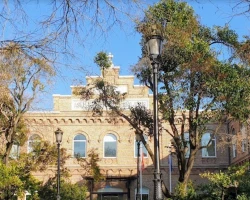
Madrid, Spain
Specializations: Thoracic surgery, Neurosurgery, Spine surgery, Orthopedic surgery, Oncology
Hospital Niño Jesús, cradle of Spanish pediatrics. Since its foundation and until today, the Hospital has been part of the birth and development of paediatrics,
read more
1
from Peter
December 05, 2023
Not as professional and friendly as they promote, all about earning money from you or your insurance but with very little care or treatment. All year with appointments and specialist for cancer an tumours ,scan after scan but not any diagnosis or treatment and suffering with swollen eye, colour change, nose and cheek burning pain and insane pressure on head and face but still no help , even though colour change on scan for my rights side of brain , cyst inside my face and gigantic problem at the back of my head and they say no problem and haven’t operated or treated. I hope I’m not dying but still don’t have any diagnosis or confirmation of anything.Now thinking I need to go to another country for help ? Wouldn’t recommend to nobody?? They won’t do anything about these reviews and even give the same answer to each person.
1
from Anita Mojtahedi
November 26, 2023
Avoid this hospital! I had to visit the hospital because of a sinus infection, but was rushed into several entirely useless procedures just to hike up the bill. The whole experience was horrible with unfriendly and rude staff. However, the worst part was that a nurse stole 340 euros from my purse in my handbag that I left in the examination room with the nurse when I was pushed into a toilet for another useless test. The hospital operations reeks of scamming people in every possible way. Despicable behaviour preying on people in a vulnerable situation.
1
from Gail Macgregor
November 13, 2023
Avoid this hospital
My husband was admitted to this hospital in 2021, 2022 and 2 days ago.
In 2021 I visited him on a Sunday, and he was on the floor (with a broken leg) trying to get onto the sofa, to get out of the window as he was hallucinating. He was on the second floor! The window was then closed and locked but no-one had noticed my husband on the floor, which is a worry. I then had to push for a brain scan, which, according to Xanit showed nothing abnormal.
He has now been diagnosed with dementia at Guadalhorce hospital, so I chose to go private again to make things happen faster.
We saw a neurologist at Xanit who said he should be hospitalised.
When we arrived at the hospital it took over 20 minutes to park as the car park was full, then when we got to reception there were almost 35 people in front of us. We were over an hour late to get to our appointment and then the computers went down!!!
We had to go down to Urgencias to be admitted. They told me he had to go to a hospital in Malaga. I then had to go back to the neurologist, as Urgencias refused to call him, and he told them to admit my husband. There was an amazing lack of communication, and the girl who was in triage was basically rude. We were then subjected to a 2/3 hour wait, then taken to a surgical ward where the nurses all moaned about the fact he was being taken into this hospital.
I speak and understand Spanish so was very aware of the things being said and I am absolutely horrified at how we were treated.
He was hospitalised on Wednesday, and we were told he would get an MRI and CT scan. My husband was aggressive, and I was told I had to stay with him 24/7. This is not why I’m paying private health insurance. I was told there are insufficient nurses to deal with all the patients they have, so I had to stay.
The MRI and CT scan didn’t happen as the machine had broken down!!! My husband was very agitated, and the neurologist and I agreed he would be better at home. Therefore, we had to make an appointment for the MRI and CT scan (29th November) I waited over an hour to make this appointment, while my husband was in his hospital room. There were 6 people in front of me, and one person in reception, who decided to deal with people who jumped the queue and one friend (I think Fran was his name).
Reception staff are awful and provide terrible customer service. They wander away on their phones when they feel like it and don’t appreciate that people visiting the hospital may be dealing with life and death situations. They are abysmal and need training.
I see from these reviews this has been going on for over a year, so I’m not sure if my comments will make any difference at all.
Absolutely shocking service.
On a brighter note, when you actually get to see a specialist, they are amazing.
Prices for popular procedures:
-
Monoclonal antibodies therapy (mAbs)
by request
-
Hemicolectomy
≈ $15,009
-
Rectum anterior resection
≈ $17,162
-
Radical prostatectomy
≈ $12,994
-
Transurethral resection of the prostate (TURP)
≈ $8,583
-
Conization
≈ $2,546
-
Open hysterectomy
≈ $6,054
-
Radical nephrectomy
≈ $14,430
-
Loop electrosurgical excision procedure (LEEP)
≈ $1,605
3.4
5 reviews
1
from Peter
December 05, 2023
Not as professional and friendly as they promote, all about earning money from you or your insurance but with very little care or treatment. All year with appointments and specialist for cancer an tumours ,scan after scan but not any diagnosis or treatment and suffering with swollen eye, colour change, nose and cheek burning pain and insane pressure on head and face but still no help , even though colour change on scan for my rights side of brain , cyst inside my face and gigantic problem at the back of my head and they say no problem and haven’t operated or treated. I hope I’m not dying but still don’t have any diagnosis or confirmation of anything.Now thinking I need to go to another country for help ? Wouldn’t recommend to nobody?? They won’t do anything about these reviews and even give the same answer to each person.
1
from Anita Mojtahedi
November 26, 2023
Avoid this hospital! I had to visit the hospital because of a sinus infection, but was rushed into several entirely useless procedures just to hike up the bill. The whole experience was horrible with unfriendly and rude staff. However, the worst part was that a nurse stole 340 euros from my purse in my handbag that I left in the examination room with the nurse when I was pushed into a toilet for another useless test. The hospital operations reeks of scamming people in every possible way. Despicable behaviour preying on people in a vulnerable situation.
1
from Gail Macgregor
November 13, 2023
Avoid this hospital
My husband was admitted to this hospital in 2021, 2022 and 2 days ago.
In 2021 I visited him on a Sunday, and he was on the floor (with a broken leg) trying to get onto the sofa, to get out of the window as he was hallucinating. He was on the second floor! The window was then closed and locked but no-one had noticed my husband on the floor, which is a worry. I then had to push for a brain scan, which, according to Xanit showed nothing abnormal.
He has now been diagnosed with dementia at Guadalhorce hospital, so I chose to go private again to make things happen faster.
We saw a neurologist at Xanit who said he should be hospitalised.
When we arrived at the hospital it took over 20 minutes to park as the car park was full, then when we got to reception there were almost 35 people in front of us. We were over an hour late to get to our appointment and then the computers went down!!!
We had to go down to Urgencias to be admitted. They told me he had to go to a hospital in Malaga. I then had to go back to the neurologist, as Urgencias refused to call him, and he told them to admit my husband. There was an amazing lack of communication, and the girl who was in triage was basically rude. We were then subjected to a 2/3 hour wait, then taken to a surgical ward where the nurses all moaned about the fact he was being taken into this hospital.
I speak and understand Spanish so was very aware of the things being said and I am absolutely horrified at how we were treated.
He was hospitalised on Wednesday, and we were told he would get an MRI and CT scan. My husband was aggressive, and I was told I had to stay with him 24/7. This is not why I’m paying private health insurance. I was told there are insufficient nurses to deal with all the patients they have, so I had to stay.
The MRI and CT scan didn’t happen as the machine had broken down!!! My husband was very agitated, and the neurologist and I agreed he would be better at home. Therefore, we had to make an appointment for the MRI and CT scan (29th November) I waited over an hour to make this appointment, while my husband was in his hospital room. There were 6 people in front of me, and one person in reception, who decided to deal with people who jumped the queue and one friend (I think Fran was his name).
Reception staff are awful and provide terrible customer service. They wander away on their phones when they feel like it and don’t appreciate that people visiting the hospital may be dealing with life and death situations. They are abysmal and need training.
I see from these reviews this has been going on for over a year, so I’m not sure if my comments will make any difference at all.
Absolutely shocking service.
On a brighter note, when you actually get to see a specialist, they are amazing.

Málaga, Spain
Specializations: Cardiac surgery, Vascular surgery, Thoracic surgery, Neurosurgery, Spine surgery, Orthopedic surgery, Oncology
Vithas Xanit Internacional is a private hospital, located in the heart of the Costa del Sol in the city of Benalmadena (Malaga region). Our team
read more
5
from Jason Allen
October 10, 2023
I had to attend the oftalmología urgencias department and the four staff present treated me fantastically. This was on Saturday October 7, and they were busy all day. I had lots of tests and was given an appointment to return on Monday to the main department for a revision. Spain really has the best public care in the world, I'm sure of it. Muchas gracias.
2
from Jeffrey Vollmer
December 29, 2022
The urgent care facility is dirty, poorly organized. The staff engages in unsanitary practices: trash receptacles-including those that take hazardous waste are left uncovered, and you often see trash littering the floor around the trash cans. Also, multiple patients are asked to sit and lie on the same paper covering on the examining tables. I saw this in multiple examining rooms.
The doctor who cared for me, Manuel Luis Gomez Blanco, was rude, impatient and haughty. He tried to dismiss me after treating me for only one of the ailments I came for. It was a very unpleasant experience, but I was able to get the treatment I sought. I just should not have had to deal with such an unprofessional environment and uncaring treatment by staff. I am fortunate my ailments were not life threatening.
1
from Dra. Luisa
June 15, 2022
I didn’t even want to give you a star. First this La Paz hospital is not friendly to English speaking patients. For international tourists or expats! You will die here . I brought my daughter to their ER. She was having shortness of breath..due to her asthma exacerbation. they made us wait for 3 hours but no treatment given nor tests done. Horrible private hospital. I went to see the doctor to tell her that my daughter needs to be nebulized. Instead of talking to me properly. They sent me out because none of them speaks English and they said wait to be called ! For 3 hours of waiting nobody gave my child management nor diagnostic procedure ! They didn’t care as to what I was pleading for . i will complain to Adeslas my health insurance and will make a report on this . I’m a dermatologist and a medical journalist from the philippines. I know the management to asthma very well. Their doctors/ nurses are all rude and with no empathy to patients. They should have. English speaking representative for the tourists coming to Spain. It’s pathetic that they have no treatment .-
Prices for popular procedures:
-
Monoclonal antibodies therapy (mAbs)
by request
-
Surgery for bone cancer
≈ $8,662
-
Soft tissue tumor removal
≈ $6,837
-
Pelvic bone resection
≈ $6,733
-
Orbital tumor temoval
≈ $15,496
-
Splenectomy
≈ $8,768
-
Thoracoplasty including sternoplasty
≈ $11,585
-
Diagnostic thoracoscopy
≈ $5,043
-
Dual chamber pacemaker insertion
≈ $9,734
3.7
5 reviews
5
from Jason Allen
October 10, 2023
I had to attend the oftalmología urgencias department and the four staff present treated me fantastically. This was on Saturday October 7, and they were busy all day. I had lots of tests and was given an appointment to return on Monday to the main department for a revision. Spain really has the best public care in the world, I'm sure of it. Muchas gracias.
2
from Jeffrey Vollmer
December 29, 2022
The urgent care facility is dirty, poorly organized. The staff engages in unsanitary practices: trash receptacles-including those that take hazardous waste are left uncovered, and you often see trash littering the floor around the trash cans. Also, multiple patients are asked to sit and lie on the same paper covering on the examining tables. I saw this in multiple examining rooms.
The doctor who cared for me, Manuel Luis Gomez Blanco, was rude, impatient and haughty. He tried to dismiss me after treating me for only one of the ailments I came for. It was a very unpleasant experience, but I was able to get the treatment I sought. I just should not have had to deal with such an unprofessional environment and uncaring treatment by staff. I am fortunate my ailments were not life threatening.
1
from Dra. Luisa
June 15, 2022
I didn’t even want to give you a star. First this La Paz hospital is not friendly to English speaking patients. For international tourists or expats! You will die here . I brought my daughter to their ER. She was having shortness of breath..due to her asthma exacerbation. they made us wait for 3 hours but no treatment given nor tests done. Horrible private hospital. I went to see the doctor to tell her that my daughter needs to be nebulized. Instead of talking to me properly. They sent me out because none of them speaks English and they said wait to be called ! For 3 hours of waiting nobody gave my child management nor diagnostic procedure ! They didn’t care as to what I was pleading for . i will complain to Adeslas my health insurance and will make a report on this . I’m a dermatologist and a medical journalist from the philippines. I know the management to asthma very well. Their doctors/ nurses are all rude and with no empathy to patients. They should have. English speaking representative for the tourists coming to Spain. It’s pathetic that they have no treatment .-
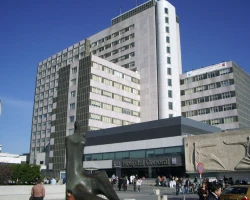
Madrid, Spain
Specializations: Cardiac surgery, Vascular surgery, Thoracic surgery, Neurosurgery, Spine surgery, Orthopedic surgery, Oncology
The La Paz University Hospital was inaugurated in 1964. Five decades in which this center has served millions of citizens of the Community of Madrid
read more
1
from Hamid Varzi
July 27, 2023
I am shocked at how mediocre and overrated this nationally famous clinic is. Even as an international, self-paying client my appointments in late 2022 were continually mixed up and, worse still, the 3 weeks of extensive diagnoses were inconclusive and they recommended cortisone for the pains throughout my body, claiming there was no alternative to this treatment. My pains steadily increased and at one stage I could no longer get out of bed without help. I finally visited a microbiologist in Hamburg who correctly diagnosed the cause, and with a simple change of diet I was pain-free within a week!. I am now completely off cortisone.
1
from Halyna
June 13, 2023
The worst childbirth that you could imagine!
Unfortunately, we chose this clinic for childbirth. At the 39th week Dra. Laura Muñoz Saá said me, that labor induction was needed. Although we did not agree with this, but we trusted her words that everything will be fine and that it is better for me and child.
The doctor assured only about the advantages of induction of labor. However, there was not a word about complications and possible consequences. Although everything was written in the informed consent.
After the start of induction, irregular labor began (opening from 2 cm to 10 cm per hour). I screamed from pain and begged for pain relief due to excruciating pain. Everyone just said that I should breathe, and I will never forget the words of the anesthesiologist who came to install epidural anesthesia. He said "all women give birth, what do you mean you can't sit down for 2 minutes?" In those moments, I prayed that it would end soon and barely sat through those 2 minutes of hellish pain. After the examination, the doctor on shift told that the cervix was already fully dilated and the child was in distress. I was told that a caesarean section should be performed immediately.
To go through hellish pain so that it ends with an operation is not the worst. The worst thing is when they start making an incision, and you say that you feel pain, just pain, and not the feeling that something is being done. In response from the anesthesiologist, I heard "don't make it up, you can't feel pain."
No one but me will understand the torments that I went through and that left a mark on my heart forever.
The most beautiful day of my life became one of the worst for me due to excruciating pain and a feeling of helplessness. When you beg for pain relief, which they still think about giving you or not, because they don't believe that you can feel such unbearable pain.
The only thing that was at the highest level was the help of the nurses and the matrons with the child. Thank you very much for your work and help!
2
from Ursula Romero
January 10, 2023
My parents have been getting treatment at this place since 2018 and since it's doors first openend then, the customer service and quality has gone down by a lot. They are taking on too many people and they are loosing sight of what matters most: the patient and their family. I lost my father recently and I am sure that his doctors at the CUN could have looked after their patient more in detail rather than making us wait for hours sometimes and the most difficult part was for my dad or me to get a hold of his doctors. The ER room service is also basically non existent. I will never use that Clinic again. Great doctors, latest Tecno but not attention to detail and bad administration.
Prices for popular procedures:
-
Monoclonal antibodies therapy (mAbs)
by request
-
Hemicolectomy
≈ $15,009
-
Rectum anterior resection
≈ $17,162
-
Radical prostatectomy
≈ $12,994
-
Transurethral resection of the prostate (TURP)
≈ $8,583
-
Conization
≈ $2,546
-
Open hysterectomy
≈ $6,054
-
Radical nephrectomy
≈ $14,430
-
Loop electrosurgical excision procedure (LEEP)
≈ $1,605
3.5
5 reviews
1
from Hamid Varzi
July 27, 2023
I am shocked at how mediocre and overrated this nationally famous clinic is. Even as an international, self-paying client my appointments in late 2022 were continually mixed up and, worse still, the 3 weeks of extensive diagnoses were inconclusive and they recommended cortisone for the pains throughout my body, claiming there was no alternative to this treatment. My pains steadily increased and at one stage I could no longer get out of bed without help. I finally visited a microbiologist in Hamburg who correctly diagnosed the cause, and with a simple change of diet I was pain-free within a week!. I am now completely off cortisone.
1
from Halyna
June 13, 2023
The worst childbirth that you could imagine!
Unfortunately, we chose this clinic for childbirth. At the 39th week Dra. Laura Muñoz Saá said me, that labor induction was needed. Although we did not agree with this, but we trusted her words that everything will be fine and that it is better for me and child.
The doctor assured only about the advantages of induction of labor. However, there was not a word about complications and possible consequences. Although everything was written in the informed consent.
After the start of induction, irregular labor began (opening from 2 cm to 10 cm per hour). I screamed from pain and begged for pain relief due to excruciating pain. Everyone just said that I should breathe, and I will never forget the words of the anesthesiologist who came to install epidural anesthesia. He said "all women give birth, what do you mean you can't sit down for 2 minutes?" In those moments, I prayed that it would end soon and barely sat through those 2 minutes of hellish pain. After the examination, the doctor on shift told that the cervix was already fully dilated and the child was in distress. I was told that a caesarean section should be performed immediately.
To go through hellish pain so that it ends with an operation is not the worst. The worst thing is when they start making an incision, and you say that you feel pain, just pain, and not the feeling that something is being done. In response from the anesthesiologist, I heard "don't make it up, you can't feel pain."
No one but me will understand the torments that I went through and that left a mark on my heart forever.
The most beautiful day of my life became one of the worst for me due to excruciating pain and a feeling of helplessness. When you beg for pain relief, which they still think about giving you or not, because they don't believe that you can feel such unbearable pain.
The only thing that was at the highest level was the help of the nurses and the matrons with the child. Thank you very much for your work and help!
2
from Ursula Romero
January 10, 2023
My parents have been getting treatment at this place since 2018 and since it's doors first openend then, the customer service and quality has gone down by a lot. They are taking on too many people and they are loosing sight of what matters most: the patient and their family. I lost my father recently and I am sure that his doctors at the CUN could have looked after their patient more in detail rather than making us wait for hours sometimes and the most difficult part was for my dad or me to get a hold of his doctors. The ER room service is also basically non existent. I will never use that Clinic again. Great doctors, latest Tecno but not attention to detail and bad administration.
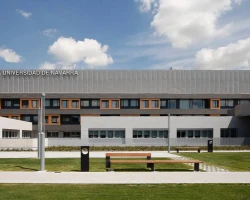
Madrid, Spain
Specializations: Cardiac surgery, Vascular surgery, Thoracic surgery, Neurosurgery, Spine surgery, Orthopedic surgery, Oncology
Languages: English
The University Clinic of Navarra was founded in Pamplona in 1962 on the initiative of Saint Josemaría Escrivá de Balaguer, founder of Opus Dei. After
read more
5
from Andrew Borg-Cardona
July 04, 2023
I was lucky enough to be hospitalised here (you know what I mean) : without exception the doctors, nurses and auxiliaries were nothing less than superb. I thank them all!
5
from 27 Stories
June 11, 2023
Private hospital based in Pamplona and Madrid.
It is worth making the trip to attend any of its specialties, which are not few.
In my case, they have given us endless possibilities.
All staff are attentive, they explain each intervention/treatment in detail and work with insurance.
Everything is organized and they have professionals for everything.
Appointments are usually on time, the waiting time in the room is short.
There is a parking lot right in front.
We will repeat and I recommend this clinic.
5
from Dan Osterbery
December 27, 2022
An incredible service, the best hospital I have ever been too. Bedside manner from doctors, nurses, and all staff is fantastic
Prices for popular procedures:
-
Monoclonal antibodies therapy (mAbs)
by request
-
Hemicolectomy
≈ $15,009
-
Rectum anterior resection
≈ $17,162
-
Radical prostatectomy
≈ $12,994
-
Transurethral resection of the prostate (TURP)
≈ $8,583
-
Conization
≈ $2,546
-
Open hysterectomy
≈ $6,054
-
Radical nephrectomy
≈ $14,430
-
Loop electrosurgical excision procedure (LEEP)
≈ $1,605
3.7
5 reviews
5
from Andrew Borg-Cardona
July 04, 2023
I was lucky enough to be hospitalised here (you know what I mean) : without exception the doctors, nurses and auxiliaries were nothing less than superb. I thank them all!
5
from 27 Stories
June 11, 2023
Private hospital based in Pamplona and Madrid.
It is worth making the trip to attend any of its specialties, which are not few.
In my case, they have given us endless possibilities.
All staff are attentive, they explain each intervention/treatment in detail and work with insurance.
Everything is organized and they have professionals for everything.
Appointments are usually on time, the waiting time in the room is short.
There is a parking lot right in front.
We will repeat and I recommend this clinic.
5
from Dan Osterbery
December 27, 2022
An incredible service, the best hospital I have ever been too. Bedside manner from doctors, nurses, and all staff is fantastic
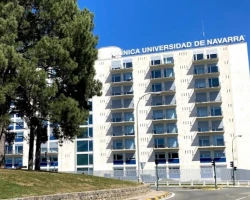
Pamplona, Spain
Specializations: Cardiac surgery, Vascular surgery, Thoracic surgery, Neurosurgery, Spine surgery, Orthopedic surgery, Oncology
Languages: English
The University Clinic of Navarra was founded in Pamplona in 1962 on the initiative of Saint Josemaría Escrivá de Balaguer, founder of Opus Dei. After
read more
1
from Eva Tornallyay
September 14, 2023
The hospital oncology is careless and amateur. They mistreared and misdiagnosed a friend of mine for months with cancer. They told him he is fine, whereas he had severe abdominal pain. What kind of doctors work there? Have they not sworn to do no harm??
1
from peter pellerito
February 10, 2023
They just don’t have the knowledge to be doctors or nurses. Sadly, all the hospitals in Spain are like this. You can find some good specialist and surgeons, but that’s about it. Free healthcare=Poor quality.
4
from Clarice Cataldi
October 07, 2021
I have been in Emergency hospitals here in Spain, was first time I got decent treatment, from receptionists, nurses and doctors was perfect the attendance. Do not give 5 stars because they did not make any treatment, because was not my reference Hospital. I think it¨s absurd, anyway was the best I have been in Spain so far.
Prices for popular procedures:
-
Monoclonal antibodies therapy (mAbs)
by request
-
Hemicolectomy
≈ $15,009
-
Rectum anterior resection
≈ $17,162
-
Radical prostatectomy
≈ $12,994
-
Transurethral resection of the prostate (TURP)
≈ $8,583
-
Conization
≈ $2,546
-
Open hysterectomy
≈ $6,054
-
Radical nephrectomy
≈ $14,430
-
Loop electrosurgical excision procedure (LEEP)
≈ $1,605
3.8
5 reviews
1
from Eva Tornallyay
September 14, 2023
The hospital oncology is careless and amateur. They mistreared and misdiagnosed a friend of mine for months with cancer. They told him he is fine, whereas he had severe abdominal pain. What kind of doctors work there? Have they not sworn to do no harm??
1
from peter pellerito
February 10, 2023
They just don’t have the knowledge to be doctors or nurses. Sadly, all the hospitals in Spain are like this. You can find some good specialist and surgeons, but that’s about it. Free healthcare=Poor quality.
4
from Clarice Cataldi
October 07, 2021
I have been in Emergency hospitals here in Spain, was first time I got decent treatment, from receptionists, nurses and doctors was perfect the attendance. Do not give 5 stars because they did not make any treatment, because was not my reference Hospital. I think it¨s absurd, anyway was the best I have been in Spain so far.
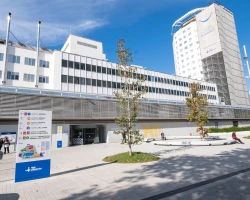
Barcelona, Spain
Specializations: Cardiac surgery, Vascular surgery, Thoracic surgery, Neurosurgery, Spine surgery, Orthopedic surgery, Oncology
The Vall d'Hebron University Hospital is the sum of our four hospitals: the General Hospital, the Children's Hospital, the Women's Hospital and the Traumatology, Rehabilitation
read more
Clinics grouping by rating
Clinic with the highest rating of 4 — Hospital Infantil Universitario Niño Jesus in Madrid, Spain, clinic with the most reviews number of 1904 — Vithas Xanit International Hospital in Málaga, Spain.
With rating 4.0 and over — 1 clinic .
Countries with the highest number of clinics treating the diseases:
Alzheimer's disease:
worldwide
324 clinics
India
26 clinics
Germany
21 clinics
Brazil
16 clinics
France
13 clinics
Russia
13 clinics
Related procedures:
Procedures are likely to be used for Alzheimer's disease treatment:
Monoclonal antibodies therapy (mAbs)
.
Quick navigation
Procedures
Diseases
- Cholecystectomy ≈ $4,606
- Distal gastric resection ≈ $6,544
- Duodenectomy ≈ $3,332
- Esophagogastrectomy ≈ $53,698
- Extended cholecystectomy ≈ $19,142
- Gastric endoscopic submucosal dissection (ESD) ≈ $3,048
- Jejunostomy ≈ $6,163
- Laparoscopic cholecystectomy ≈ $5,278
- Laproscopic total gastrectomy ≈ $14,756
- Major liver resection ≈ $30,845
- Minor liver resection ≈ $12,185
- Non-anatomic liver resection (NAR) ≈ $26,469
- Parathyroidectomy ≈ $5,191
- Proximal gastric resection ≈ $14,620
- Small bowel resection ≈ $9,924
- Subtotal gastrectomy ≈ $12,255
- Total esophagectomy ≈ $27,912
- Total gastrectomy ≈ $22,800
- Benign bone tumor
- Bone cancer
- Chronic pain
- Eye cancer
- Eye melanoma
- Head and neck cancer
- Hip osteoarthritis
- Jaw tumor
- Knee osteoarthritis
- Lacrimal sac tumor
- Lip cancer
- Mandibular cancer
- Maxillary cancer
- Oral cancer
- Parotid tumor
- Pharyngeal cancer
- Rheumatoid arthritis
- Salivary gland tumor
- Spinal cancer
- Submandibular sialadenitis
